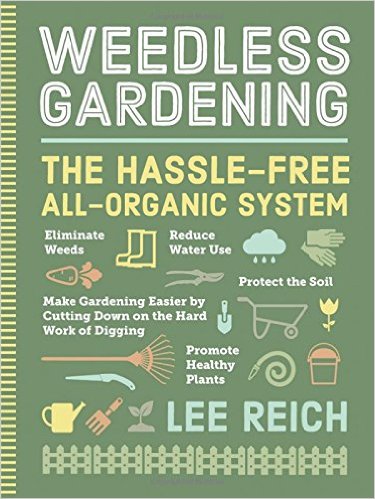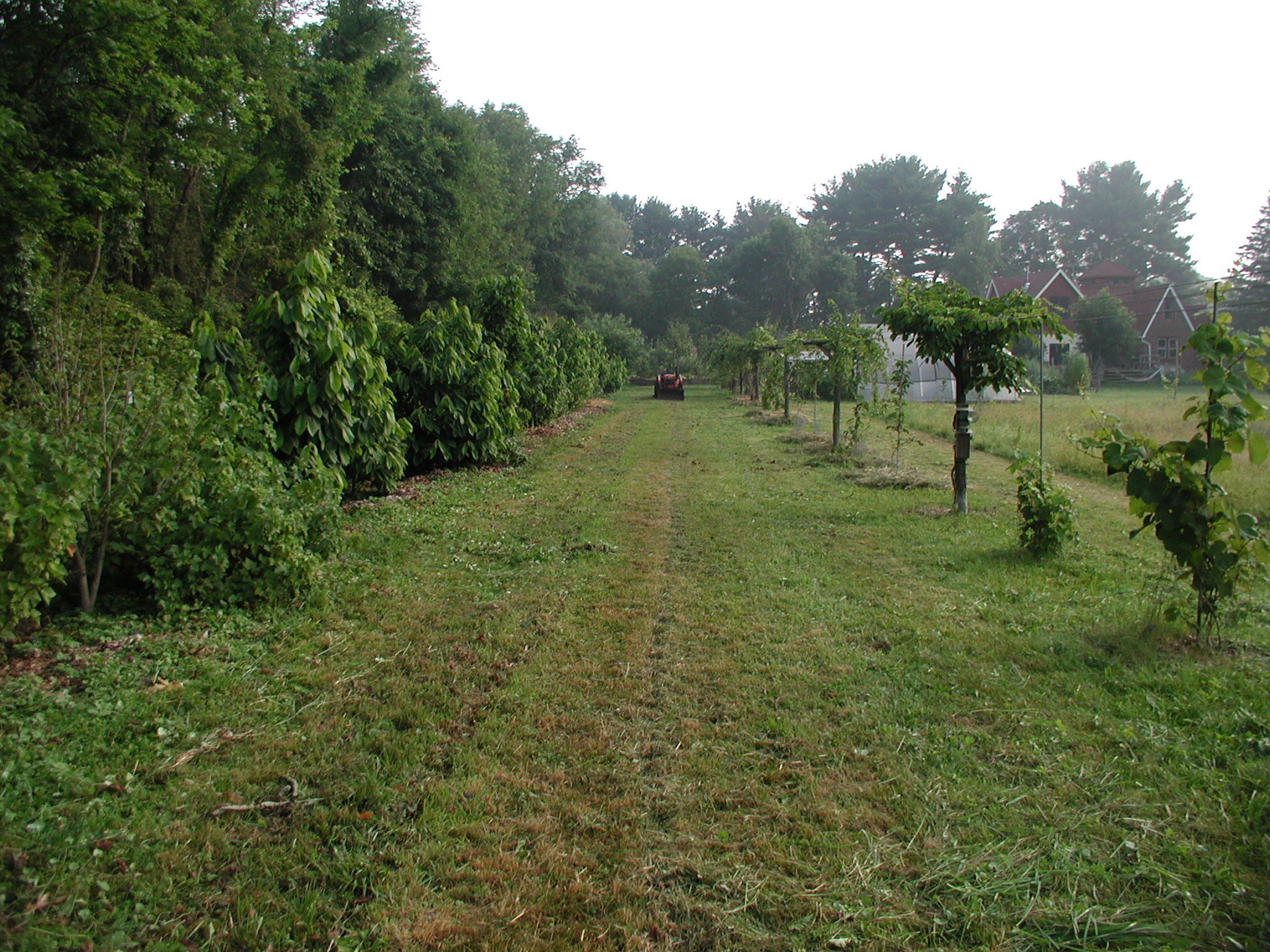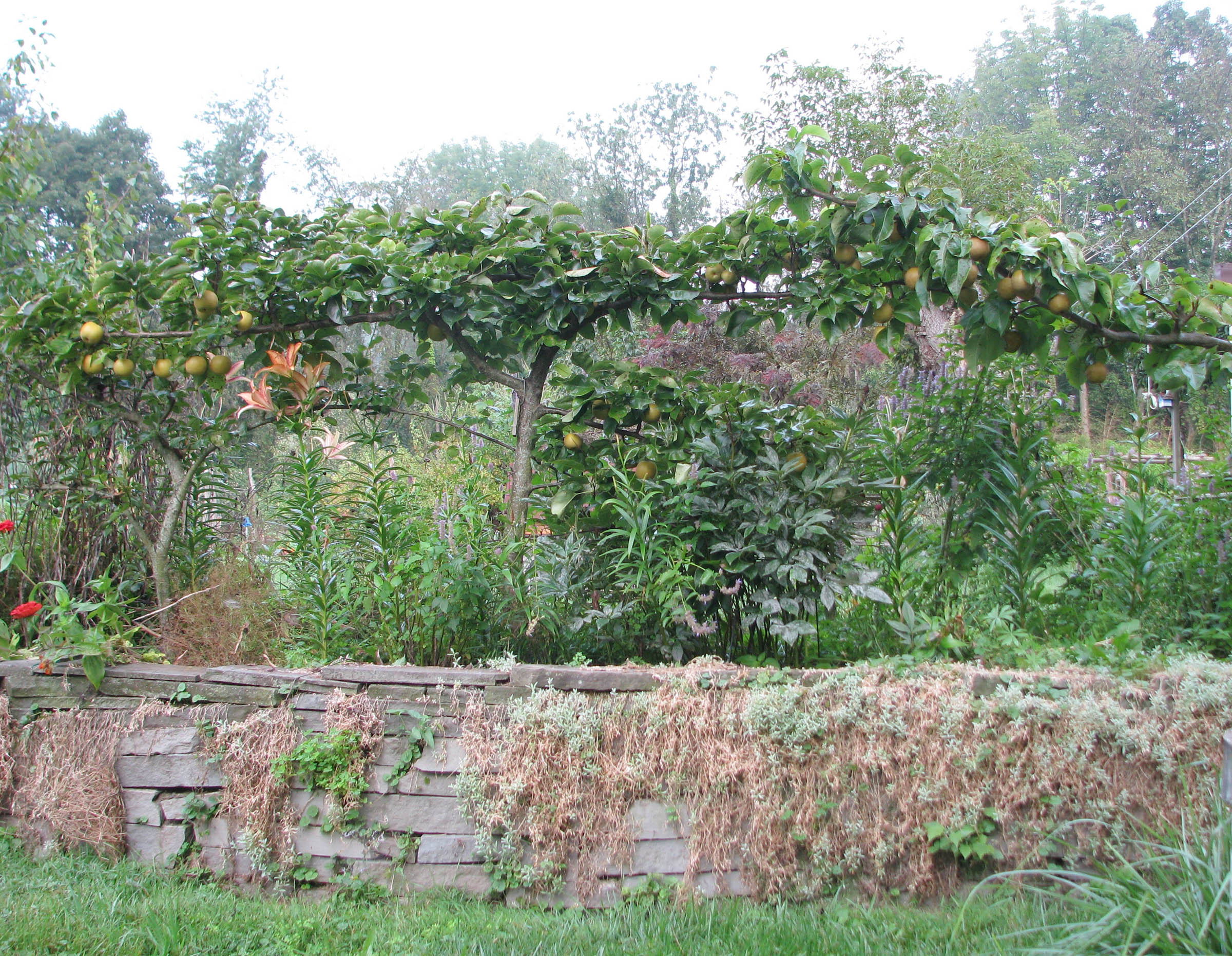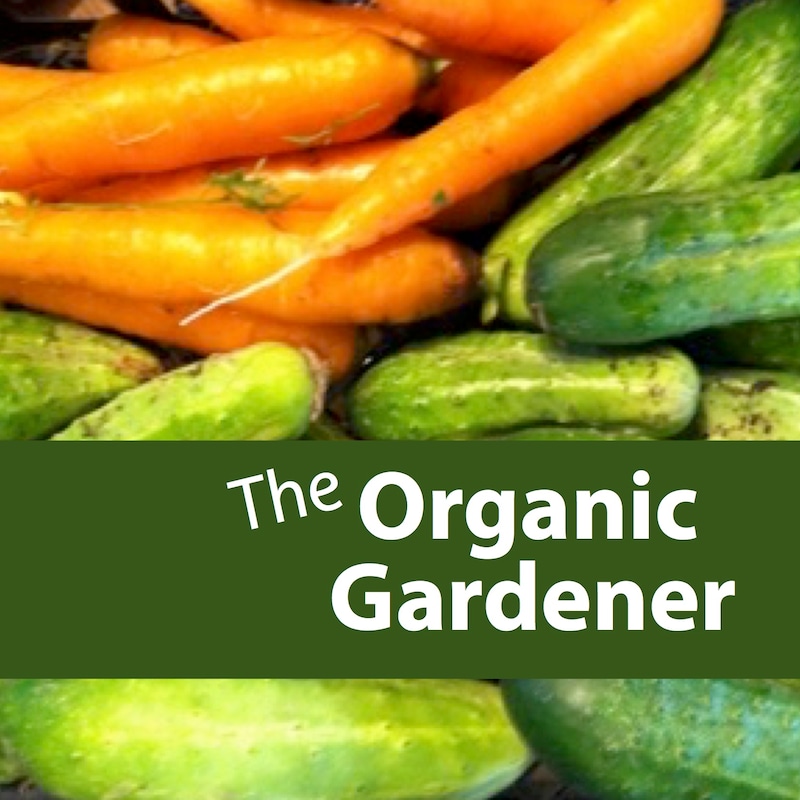
Shownotes
The Ever Curious Gardener: Using a Little Natural Science for a Much Better Garden
I grew up on Long Island, just got back from New York, but IDK if I have ever been there. I talked at a guy Aiden who is a manager at Young’s Farm and Larry Tse who runs a farm for Dig Inn which is also in the Hudson Valley. It is July 11, 2018 and I have a guest who’s books have been recommended a number of times on the show.
 Tell us a little about yourself.
Tell us a little about yourself.
I did not grow up in agriculture
a long time ago I was in college and grad school in Chemistry, then i dropped out of grad school in Chemistry and I moved to Vermont for a year to figure out what I was gonna do and I got really into reading about gardening. After a year of not doing much in VT I went to grad school in Ag at the U Wisconsin.
I dove into gardening intensively, I was learning a lot, because I didn’t know anything!
I was learning a lot about soil science especially, because that’s what I was in grad school in and after few years I got a degree in horticulture too. Still gardening crazily.
access to a good agriculture library so I would read everything I could find besides doing it. I worked for the Soil Conservation Services which is now called the Natural Resource Conservation.
Went back to school and got my Doctorate in Horticulture with a specialty in fruit crops. I worked for Cornell for a while, when that job ended I went off on my own lecturing and writing and consulting.
The whole time I did garden like a maniac, I still do, it hasn’t lost it’s appeal. I still love it!
One other addition when I moved to NY to work for Cornell so I planted 3/4 acre
fruit trees

The Farmden
field another 2 acres south of my property. A little over 2 acres. Instead of planting 2 of each fruit tree I planted 20 so I could study them more. I renamed it a farmden, more then a garden a little less then a farm!
Tell me about your first gardening experience was that in Grad school?
When I was very very young we had a house just north of NYC
We had a house with a small vegetable garden, it was planted by the swing set. I wasn’t that into the garden, I liked eating from the garden. I remember my father giving me this shovel and said, turn over the soil here. It was taller then me, I remember trying to put the shovel in the ground, it was like a rock, it was a stiff clay soil.
It’s tough when you have that kind of soil, Mike was just telling me the other day don’t dig there, don’t you see all those rocks.
Weedless Gardening The Hassle-Free All-Organic System
a bold title the publisher made up, I always say it’s not Weedless, it’s Weed Less gardening, the main theme, that I practiced is
no till
My garden soil has not been dug for many years
partially
studying soil science
goes back to trying to shovel in the ground when I was a little kid.
You did all this school, started writing, gardening the whole time, so I guess one big questions I have is that at school you don’t always learn the organic way, and how did you learn the No-Till thing?
Not in school, as a matter of fact, it was kind of mentioned disparagingly, if at all…
definitely didn’t each organic
sort of learning basic soil science
basic soil science
isn’t organic or not organic, it’s just basic soil science and can be applied organically or not organically but I used it from the organic perspective
Now most of the land grant colleges have come around to noting the benefits of organic guarding learning the basics.
I like to learn from books and trying things out in the field.
I was trying things out reading a lot and gardening a lot
I feel lucky to have that opportunity to have access to all that literature and have a garden.
classroom access to have a classroom
could not live anywhere without a garden.
I think that’s perfect for my listeners because I think a lot of my listeners are like that , there are definitely new gardeners but may are master gardeners people who’s whole backyard is a garden, and they have been doing it a lot like you have. Do you want to tell us about something that grew well this year?
Let me say one more thing. A lot of people, I actually wrote a book that just came out this past spring.
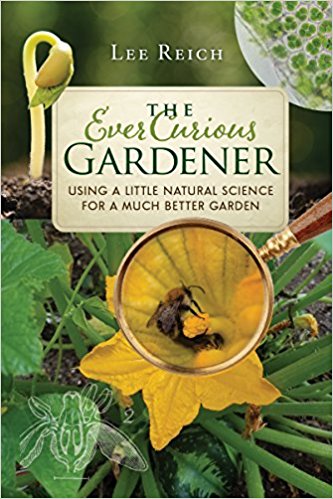
The Ever Curious Gardener: Using a Little Natural Science for a Much Better Garden
- relates to what I said previously
- people don’t realized the awesomeness of the science that’s going on in the garden
- making plants grow
- stick a seed
- what’s happening out there
- get better results
- garden
- was quite good
- just cause I learned what was going
If you have any tips for soil health because that is a total theme on my show.
TIPS galore on soil health
start out studying soil
before I studied horticulture
hate to even throw out anything it goes to the landfill is to me disrespect for soil
The no-till thing is
care for the soil
not a religion like you are a bad person if you till your soil.
But if you manage a system where you don’t have to till the soil, it really does lead to healthier soil
increase soil organic matter
- physical characteristics
- nutritional characteristics
- really increase soil’s organic matter.
When you till a soil
- fungi
- hype
- thin threads
When you till a toil it breaks them up worms obviously won’t like a soil that’s being tilled all the time
main things
really important
building up organic matter as much as possible with
- compost
- manures
- cover crops
I’m lucky because I’ve been over 30 years in same place
- levels are super high
- nice and soft
- joy to work.
Well, I know listeners are probably wondering and I know we struggle here if we are building new beds, where do you come up with soil. I mean we never have enough compost. We’re constantly expanding. Now he has this thing I call the mini-farm that’s maybe a 1/4 acre, anytime he puts in new beds, we have 260′ of fence in our old garden.
I also think it’s so true it’s disrespectful to be throwing things out. Are you just talking about organic matter or turing in beat greens when you harvest the beets. This year he grew fava beans but as a cover crop but we harvested the beans. I keep reading about cover crops and you’re supposed to kill them before they flower.
yeah, that’s good.
my suggestion is don’t even turn it into the soil, because when you mix it in you are disrupting the fungi and worms and you are actually adding oxygen while turning up the organic matter.
ways to deal with cover crops so they are winter kill.
on a home garden scale
that winter kills
oats
plant it
really likes cool weather, come dec, when January comes around the winter kills and then by spring the tops you can rake off and just plant
there’s a lot of research on big farm scales
crimpers that knock it down and sort of cut it up just into the surface.
Ok, cool, because I haven’t really heard about people using it on a big scale. Good to know.

Another No-Till Tip
keep everything simple
It takes more time to complicate things, people come up with all sorts of things, it will probably alienate some readers, is compost tea
use it
some you can make
compost it rains, the compost goes into the soil.
separate and water it on my plants
great thing
not worth using
it does have some benefits sometimes and sometimes negative.
Tell us about something that grew well this year.
I look at lot of commercial horticulture, I get these bulletins from Cornell about what pests are around and what sprays to put on things. IDK if it’s
- just luck?
- taking care of soil?
- time things?
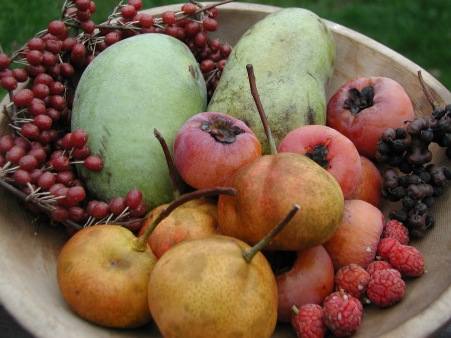
Vegetables, I generally find them easy to grow
I have very few pest problems
grow a bunch of different vegetables
something fails you have a lot of other things
very few pest problems
I think a lot of my guests have said that healthy soil is key but I know that I have got the impressions that those of us that live in northern climates the less pests we have and also the majority of my guests have agreed that healthy soil leads to less pests.
semantic thing
plants are healthier you get less pests.
less health
what a healthy plant is, one way could be to define it as no pests.
And no disease?!
Yes, here in the NE
get a lot of pests and diseases
especially on fruit plants
common plants
generally things grow well
I try to grow plums here
Plums have a lot of pest problems
I lot of years, I basically don’t get any plums. Maybe where you are you might have certain limitations for climate.
insects
you don’t have as many pests
dryer climate.
I am so curious to see, we had a plum tree that was covered in plums like crazy and right before harvest they died and now we have a plum tree that has finally grown an abundance o plums and I’m curious to see what happens?
Maybe you do have some of the diseases we have. I have a plum tree, one has nothing
One is loaded and sometimes as they ripen, they get a fuzzy gray coating and they rot and dry up it’s called brown rot. It is common here in the east.
That one tree was young, only like 3 years old. This one, I want to say has been in there since 2012 and this is the first year it has put out any fruit at all, and it is just covered in plums.
tell you about one of my successes.
I have a small greenhouses,
20×20
Not that small …
Yes, I guess.
I get a lot of use out of it, minimally heat it so it doesn’t freeze
fresh salad stuff all winter
- fresh kale
- celery
In the spring I raise all the seedlings from my garden in the greenhouse
in the summer. This is the best part I have four fig trees planted in the ground
I planted in 2001, they have trunks about 8” across. First of all, I have to control the growth because they can get big in a greenhouse.
A few years ago I started getting one pest
scale insects
very hard to control, we used to try everything.
- toothbrush with alcohol
- spraying with oil
- try a whole bunch of different things
I grow figs outside in pots that I have to bring into my basement. Every year the scale insects would get the better of me and it was like an actually race fruits are they before they ripen or not. So I read about it and I find out there are some beneficial insects.
Actually they were mealy bugs
beneficial insects
bought 2 different types
one in April and another...
